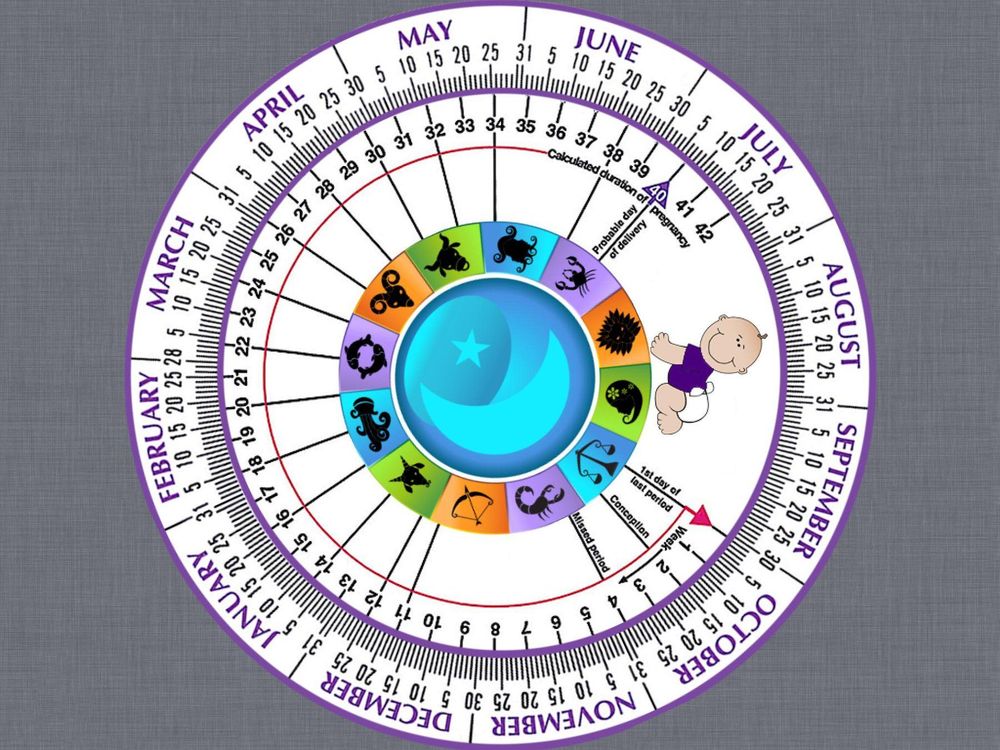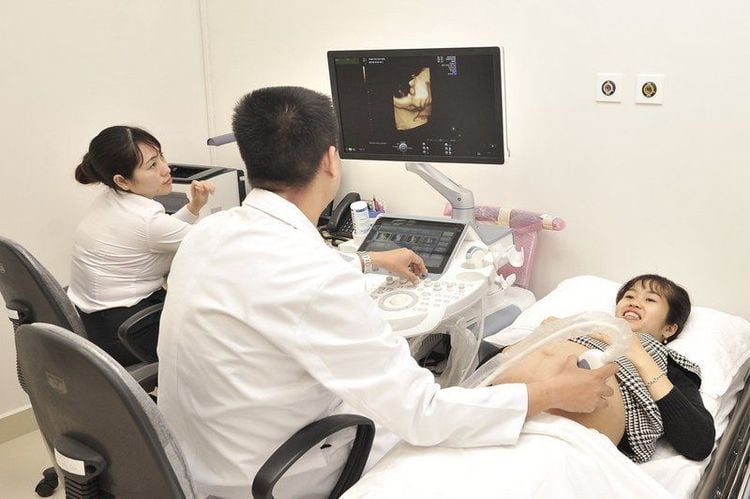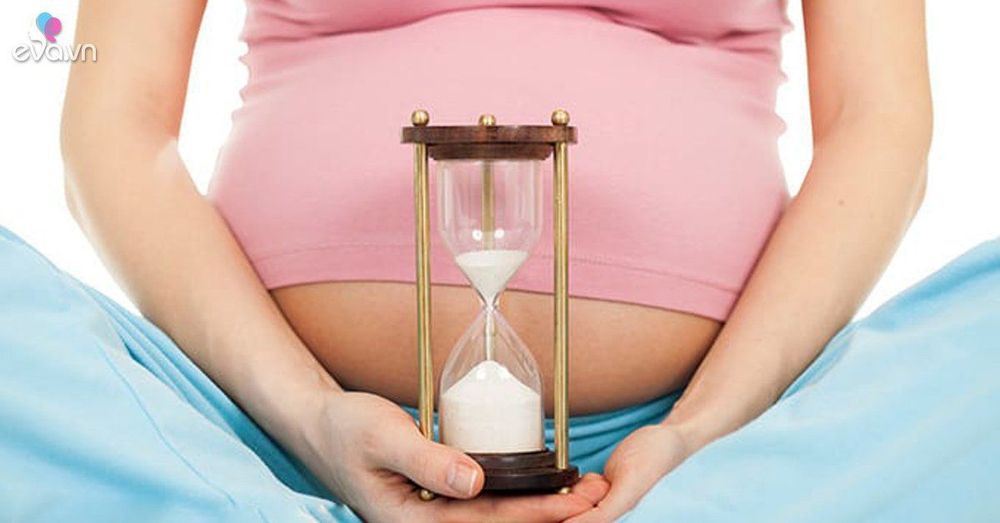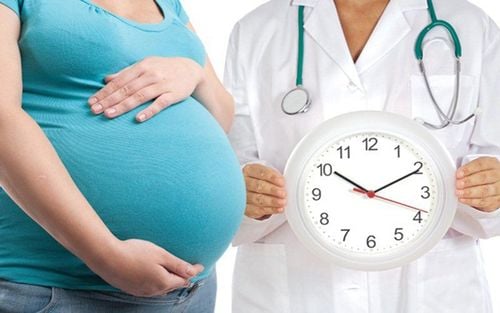Article reviewed by: Dr. Nguyen Anh Tu, Obstetric Ultrasound and Prenatal Diagnosis Specialist, Obstetrics Department, Vinmec Hai Phong International General Hospital
A typical pregnancy lasts approximately 280 days (around 40 weeks) from the first day of the last menstrual period (LMP) before conception. However, the estimated due date (EDD) can sometimes change, and in some cases, an ultrasound may estimate the due date to differ by up to 2 weeks compared to the actual delivery date. In reality, very few women deliver on their exact due date.
1. How Is the Estimated Due Date Calculated?
Women with a regular 28-day menstrual cycle can estimate their due date using the following methods:
Naegele’s Rule
Naegele’s Rule provides a simple calculation: Add 7 days to the first day of the last menstrual period and subtract 3 months.
Example: If the first day of the last menstrual period is November 1, 2017, the estimated due date is August 8, 2018.
Pregnancy Wheel
A pregnancy wheel is another common method to estimate the due date, often used by clinical practitioners. To calculate:
Mark the first day of the LMP on the wheel.
The pointer on the wheel will indicate the estimated due date.
These methods provide an approximate time when the baby is expected, but the probability of delivering on the exact due date is relatively low. If the woman cannot recall her LMP, alternative methods to determine the due date include:
Estimation based on the approximate week when the last period occurred.
Calculating the due date using ultrasound measurements.
For women with a longer menstrual cycle (e.g., 35 days), adjustments are necessary. Ovulation generally occurs 14 days before the next expected period. If the LMP is known, the adjusted ovulation date can be used to estimate the due date.

If the menstrual cycle is 35 days, and the first day of the LMP is November 1:
Add 21 days → November 22.
Adjust by subtracting 12 days → November 8.
The adjusted LMP can then be used on the pregnancy wheel to estimate the due date.
2. Determining the Due Date Using Ultrasound
Ultrasound scans are another method to determine the estimated due date. During an ultrasound, the doctor notes two due dates:
The due date based on the last menstrual period (LMP).
The due date based on fetal measurements observed on the ultrasound.
It is rare for these two dates to be identical. If the woman has a regular 28-day cycle, doctors usually do not adjust the due date unless there is a significant discrepancy between the LMP-based due date and the ultrasound-based estimate.
The ultrasound calculates the due date using fetal biometric measurements, including:
Crown-rump length (CRL): The measurement from the top of the head to the bottom of the spine.
Head circumference (HC).
Femur length (FL).
When multiple ultrasounds are performed throughout pregnancy, each result may provide a slightly different estimated due date. However:
The first-trimester ultrasound (before 13 weeks) provides the most accurate due date.
In the second and third trimesters, ultrasounds are less accurate for estimating the due date and are instead used to assess fetal growth and development.

3. Why Do Doctors Change the Estimated Due Date?
Doctors may adjust the estimated due date if the fetus is significantly smaller or larger than expected for the given gestational age. Situations where the due date may be changed include:
Uncertain LMP or irregular menstrual cycles.
Conception while using contraceptives.
During the first trimester, the due date is based on the crown-rump length (CRL), which is highly accurate. If there is a discrepancy of more than 1 week between the LMP-based date and the ultrasound measurement, the doctor may adjust the due date.
In the second trimester, ultrasounds are less accurate, and the due date is only adjusted if the difference is greater than 2 weeks.
In the third trimester, ultrasounds are the least accurate for estimating the due date, with an error margin of up to 3 weeks. For this reason, doctors rarely change the due date during the third trimester. Late-term ultrasounds are primarily used to evaluate fetal development rather than estimate the due date. The estimated due date may change between ultrasound scans, but the most accurate estimate is determined during the early weeks of pregnancy. During this time, fetal growth is consistent, providing a reliable measurement. In the later stages of pregnancy, fetal growth rates vary significantly, reducing the accuracy of ultrasounds for due date estimation.

At Vinmec International General Hospital, the Comprehensive Maternity Package offers a reliable solution for expectant mothers. The package ensures that:
Pregnancy is monitored by a team of highly specialized doctors.
Regular check-ups allow for early detection of any abnormalities.
Comprehensive support is provided during childbirth.
Newborns receive thorough care.
For more health, nutrition, and beauty tips, visit Vinmec International General Hospital to safeguard the health of yourself and your loved ones.
Please dial HOTLINE for more information or register for an appointment HERE. Download MyVinmec app to make appointments faster and to manage your bookings easily.
References: healthline.com, babycenter.com, acog.org/Patients









